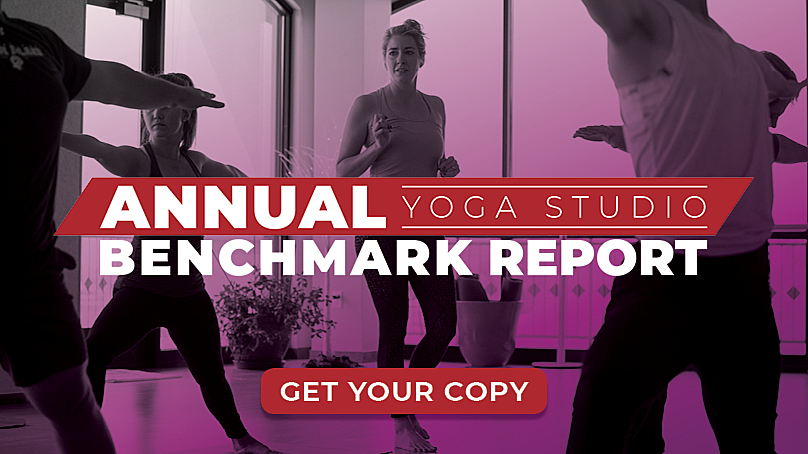Yoga Studio Owners: Are You Ready For New Government Regulations?


Imagine this scenario- your state has expanded regulatory authority over your yoga studio. You must have your studio inspected yearly and then display the most current certificate of inspection in your lobby. You have to apply to the state if you want to host a teacher-training program, and you can only hire instructors who are approved by your state. As a studio owner, how do you feel about this? Some industry experts say it’s similar to the process you already (voluntarily) follow under the Yoga Alliance, but others are outraged.
No matter what side of the debate you stand on, there is a real chance your state may end up with authority over the practice of yoga in your studio. We’re not talking about fire codes and labor laws. We’re talking about programmatic and certification oversight for your studio and instructors. But with thousands of new yoga instructors leading classes each year, some people believe this is a natural progression and a smart way to ensure the safety of your yoga students.
Since this is a complex issue that varies from state to state, we want to give you a rundown of the situation and the viewpoints of the two differing sides.
The Background Story
Some states believe teacher-training programs should fall under laws that mandate oversight for vocational or post-secondary education. Some states also want the ability to regulate yoga from a programmatic standpoint.
The Yoga Alliance explains the issue this way: There are two major regulatory issues facing the yoga community: government licensing regulations and post-secondary education and vocational training regulations.
 Currently, states are as divided on the issue as yogis themselves. Some states, like New York and Arizona, won the authority to regulate studios and teachers. In other states, active yoga communities, backed by the Yoga Alliance, successfully fought the legislation. Yogis and studio owners in Colorado and Missouri are the two most recent to win their freedom from state intervention.
Currently, states are as divided on the issue as yogis themselves. Some states, like New York and Arizona, won the authority to regulate studios and teachers. In other states, active yoga communities, backed by the Yoga Alliance, successfully fought the legislation. Yogis and studio owners in Colorado and Missouri are the two most recent to win their freedom from state intervention.
Here’s a brief synopsis of the main arguments for and against state intervention.
Those Opposing State Regulation Say:
- State agencies have little to no knowledge of the practice of yoga. From Bikram and Kundalini, to Yoga Nidra, each lineage has its own traditions and practices that are very different. States will need to find universal ways to implement standards across the board, which will compromise the intent and heritage of these ancient practices.
- Additional fees and requirement from the legislation will be too costly for most small studios to bear. As a result, many studios will go out of business.
Yoga Journal reports that one studio in New York, a state that currently regulates the industry, was hit with the threat of a $50,000 fine if they didn’t comply with teacher training program regulations. Because of that, the studio was forced to refund their trainee candidate’s tuition and postpone the training program indefinitely.
Those Supporting State Regulation Say:
- Government oversight will ensure safe and uniform teacher training programs and classes in studios. Not only will this help students better evaluate programs and studios, but it will keep everyone safe.
- Complaints and issues will be addressed in a fair manner by regulatory boards, where currently there are no such safeguards in place. Now, if a student is unhappy with their teacher-training program, their only option is to appeal directly to the studio owner for a refund or solution.
- As mainstream medical professionals continue to recognize the benefits of yoga, legislation will allow the practice to become a standard form of care covered by health insurance companies.
No matter how you feel about this issue, studio owners should monitor the situation by following the Yoga Alliance. Their section on Advocacy has a running list of all recent state news. It’s also likely that your state will have a formal organization for studio owners and instructors, like the Yoga Teachers of Colorado. State specific groups like that will provide opportunities for getting involved and affecting legislation in your state.
A question that should be on the minds of all fitness business owners is what’s next? If you own a small gym and pay a yoga instructor to lead a few classes a week, are you going to be impacted by this issue? And what about other fitness instructor certification programs? If yoga instructor training programs fall under state oversight, will CrossFit and Pilates be next?
The mainstream acceptance of yoga is a dream come true for most yogis, but the process of widespread adoption is not free from challenges. Stay informed, and get involved if you feel passionate about the issue. Yogi communities in states like Colorado and Missouri prove that getting involved pays off, no matter which side of the issue you’re on.
Interested in seeing what other yoga studios around the world are doing to create success for themselves? Get your copy of our free Yoga Studio Benchmark Report. 

I’m Coach Kelli, a devoted CrossFit gym owner with 15 years of experience managing my facility, along with owning yoga studios and wellness centers. Beyond the fitness world, I have a passion for cooking, cherish moments with my children and family, and find joy in spending time outside. Having experienced the highs and lows, I’m dedicated to leveraging my expertise to help you grow and succeed on your fitness journey.

I’m Coach Kelli, a devoted CrossFit gym owner with 15 years of experience managing my facility, along with owning yoga studios and wellness centers. Beyond the fitness world, I have a passion for cooking, cherish moments with my children and family, and find joy in spending time outside. Having experienced the highs and lows, I’m dedicated to leveraging my expertise to help you grow and succeed on your fitness journey.







